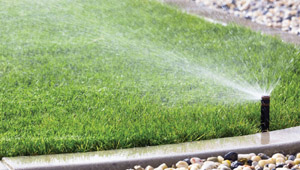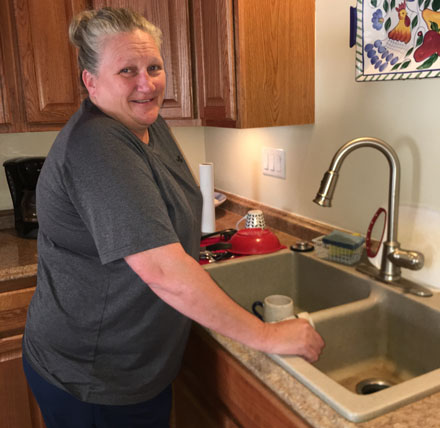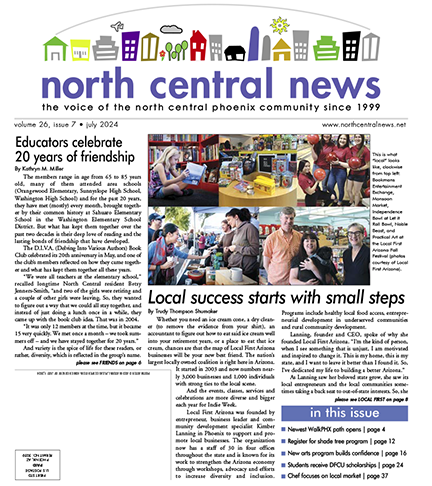Aging water lines in need of repair and replacement, combined with an expected shortage of Colorado River water in the future, have led the city of Phoenix to propose raising water rates to collect the necessary funds to combat these issues.
The Water Services Department is recommending a 6 percent water rate increase in 2019 and a 6 percent water rate increase for 2020. There is no proposed sewer rate increase. The rate increases were unanimously approved by a Citizens Water Rate Advisory Committee on Aug. 16.
Phoenix water rates contain a generous “allowance” of water that is included each month in the fixed charge. For those that keep their water consumption low and within this allowance, average monthly bills will increase by only approximately $1 per month in 2019 and by an additional 75 cents per month in 2020. Average water uses will see and increase of $2.35 in 2019 and an additional monthly increase of $2.29 in 2020.
For those with heavier water usage, including homeowners with large properties of “green” landscape, the rate roughly translates into a monthly increase of $4.66 in 2019 and $5.14 in 2020.
Residents have an opportunity to learn more about the proposed rate increases, the causes behind them, and have their questions answered during a public meeting 6 p.m. Wednesday, Nov. 14 at Burton Barr Library, 1221 N. Central Ave.
“Our challenge is pretty clear. Out here in the middle of the desert, we need to make sure 1.6 million people get reliable, clean, safe water delivery every day,” says Water Services Director Kathryn Sorensen. “Phoenix has done many things to plan for its water supply over many decades. There is a basket of opportunity that we rely on that includes a combination of river water, groundwater and reclaimed water.”
She says that users have become more water conscious, and as a result even though the population has increased, water rates themselves have fallen 30 percent over the last 20 years. “Efficiency is up. But it’s just not enough,” she points out. “The Colorado River water has been over-allocated; we are in year 18 of a drought, and the Lake Mead reservoir and Lake Powell are at historic lows.”
The Colorado River climate overall is becoming more arid. Due to a combination of higher temperatures and decreased snowpacks, flows from the Colorado River are expected to diminish by 25 percent in the next decade. The far north portion of Phoenix gets its water almost exclusively from the Colorado River.
“We have to plan for that anticipated drop in river water,” Sorensen explains. “There are many ways that can be accomplished, including ‘banking’ water and building up capacities in wells.”
To that end, an agreement has been reached with Salt River Project (SRP) to provide Phoenix with access to additional storage capacity in certain SRP-owned-and-operated underground water storage facilities. This allows Phoenix to store currently unused portions of its annual allocation of Colorado River water for later recovery during potential shortage events.
The city also is in the process of building a new large reservoir at the Deer Valley Water Treatment Plant, 3030 W. Dunlap Ave., to replace the old one built in the 1960s that had irreparable damage and was closed in 2011. But to pump that reservoir water north, the city needs very large transmission mains and pump stations along the way. A five-year plan of $500 million for Colorado River storage includes construction costs of these new mains and stations.
“Phoenix has planned for enough water, but not in the right places. We need to plan to get it moved,” Sorensen says. “It will take years, but we have enough time to be ready, if we start now.”
The other looming issue the city is dealing with is its aging infrastructure. The water services department has been around for 110 years. There are pipelines that were installed in the 1920s and 1930s. Given their age and the materials that were used at the time, there is a likelihood of multiple failures. There are 7,000 miles of water pipelines and 450,000 service lines in the city.
The plan is to triple the amount spent on retrofitting those aging and failing pipes. The proposed rate increases would help fund $525 million on pipeline repairs, through fiscal year 2022-23.
Residents can visit the Water Department’s home page at www.phoenix.gov/waterservices to read more about the proposed rate increases and the Colorado River Outlook.
These recommendations will go to the Phoenix City Council for a vote on Wednesday, Dec. 12. If approved, the rates will go into effect Feb. 4, 2019.










































